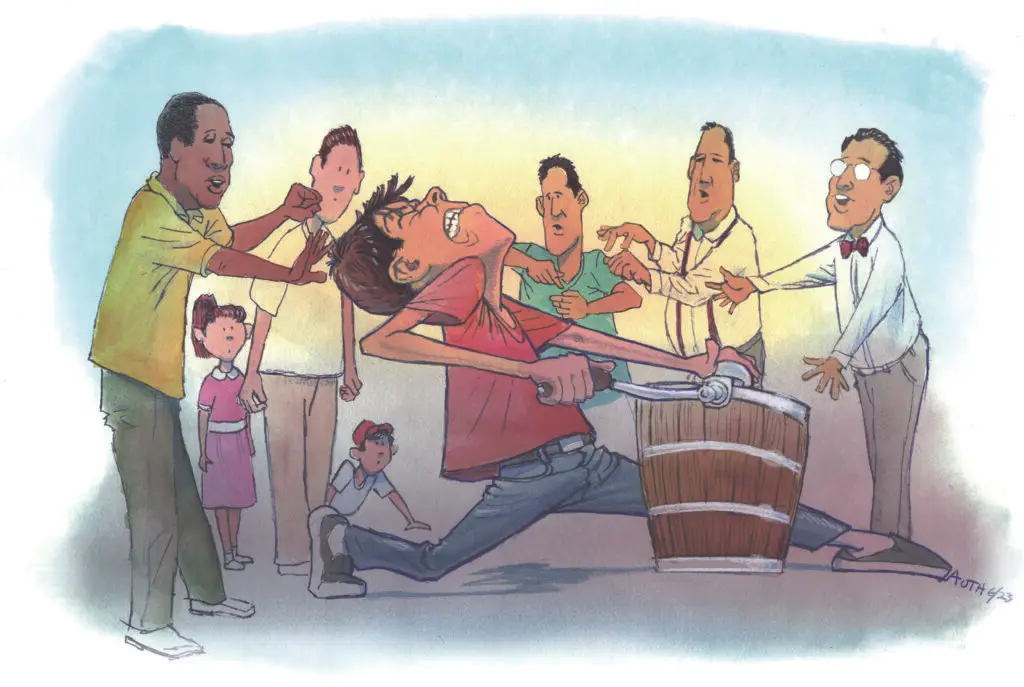
Among the many labor-saving devices made possible by electricity, the most important to me as a boy was the electric ice cream freezer.
For it was my labor that it saved.
As you know, “Memory Lane” is full of the potholes that reminiscing tends to fill and forget. I am as guilty of “rose tinting” the past as the next guy, and when someone challenges the accuracy of a recollection, I often fall back on what my cousin-in-law Kathryn Tucker Windham replied when similarly challenged: “If it did not happen that way, it should have.”
So, it follows that I remember fondly the ice cream that we made and not what it took to make it.
Which was work.
The division of labor was simple: women made the custard and men turned the crank.
In theory.
In reality, my reality at least, the custard magically appeared and it was left to the boys of the family to freeze it.
The men supervised.
And advised.
“You need more ice.”
“The drain hole is clogged.”
“Turn steady.”
“Too fast.”
“Too slow.”
While the boys turned the crank.
The girls helped their mothers.
Slowly, much to slowly as I recall, the custard hardened and the crank got harder to turn. As it did, the fatherly advice took on a certain urgency.
“Don’t stop turning” – advice that convinced us that a missed turn on the crank would spoil the everything.
“Add more ice.”
“Add more salt” – years passed before I learned the role salt played in the freezing process. Some things a boy accepts on faith.
“Clean the drain hole,” for if the salt water did not flow free, it would back up into the ice cream.
Then, after a while, the crank became too hard for a boy to turn. Then one of the men took over and, when it was done, took credit for the doing.
Another life lesson learned. How to get win praise for someone else’s work.
Finally, even the strongest could not turn it.
The paddles were removed and the ice cream that stuck to them was given to the children for a lick or two.
Then the top was put on, the paddle-hole was plugged, and the ice cream was packed for later.
Impatiently, we children waited.
For unless it was an “ice cream social” where the ice cream was the main dish, the ice cream was dessert.
No one had to warn children not to eat too much “dinner” and spoil their ice cream appetites.
Impossible.
So we fidgeted through the blessing, gnawed on a drumstick, played with our vegetables, and remained nearly famished when the time arrived.
“Don’t eat it too fast or you’ll get a ‘brain freeze’.”
Which we did and, we did.
And when that passed, we ate some more.
Now I am certain that the table contained many appetite delights, but none are remembered like I remember the ice cream.
Homemade ice cream made the moment, and the memory, for me.
And, thanks to electricity, I don’t have to turn it myself.
Harvey H. (Hardy) Jackson is Professor Emeritus of History at Jacksonville State University. He can be reached at [email protected]




